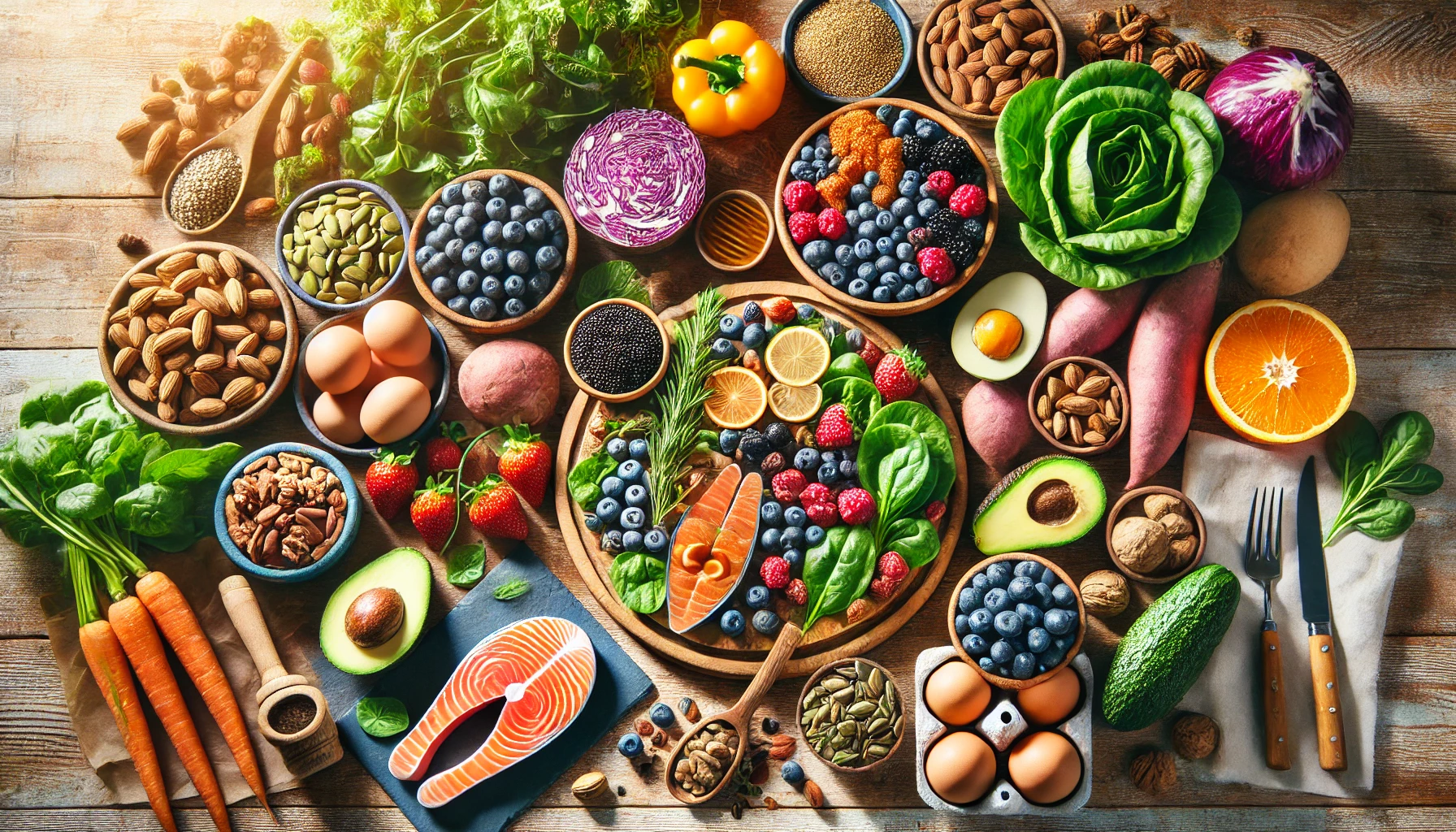Eating a nutrient-dense diet is one of the best ways to support your overall health and well-being. Nutrient-dense foods are rich in vitamins, minerals, and other essential nutrients while being relatively low in calories. Incorporating these foods into your daily meals can boost your energy levels, improve immunity, and reduce the risk of chronic diseases.
Leafy Greens
Leafy greens like spinach, kale, and Swiss chard are packed with vitamins A, C, and K, as well as minerals like calcium and iron. These vegetables are also rich in antioxidants, which help fight inflammation and protect against cellular damage. Add leafy greens to salads, smoothies, or sauté them as a side dish for a nutritional boost.
Berries
Berries such as blueberries, strawberries, and raspberries are not only delicious but also full of nutrients. They are high in fiber, vitamin C, and powerful antioxidants like anthocyanins, which promote heart health and protect against aging. Enjoy them fresh, in yogurt, or blended into smoothies.
Fatty Fish
Salmon, mackerel, and sardines are excellent sources of omega-3 fatty acids, which are essential for brain health and reducing inflammation. They also provide high-quality protein and vitamin D. Aim to include fatty fish in your diet at least twice a week for maximum benefits.
Nuts and Seeds
Almonds, walnuts, chia seeds, and flaxseeds are nutrient powerhouses. They are rich in healthy fats, protein, and fiber, as well as important minerals like magnesium and zinc. A small handful of nuts or a sprinkle of seeds on your meals can add crunch and significant nutritional value.
Whole Grains
Whole grains like quinoa, brown rice, and oats are unprocessed and retain their natural nutrients, including B vitamins, iron, and fiber. They provide long-lasting energy and are a healthier alternative to refined grains. Use whole grains as a base for bowls, soups, or as a side dish.
Legumes
Beans, lentils, and chickpeas are excellent plant-based sources of protein, fiber, and iron. They are also budget-friendly and versatile, making them an easy addition to salads, stews, or dips like hummus.
Eggs
Eggs are one of the most nutrient-dense foods available. They contain high-quality protein and are rich in vitamins like B12, D, and choline, which is essential for brain health. Enjoy eggs boiled, scrambled, or as part of a hearty breakfast.
Cruciferous Vegetables
Broccoli, cauliflower, Brussels sprouts, and cabbage are part of the cruciferous family. These vegetables are loaded with vitamins, minerals, and compounds that may help reduce the risk of certain cancers. Add them to stir-fries, roast them, or enjoy raw with a healthy dip.
Avocados
Avocados are unique fruits rich in heart-healthy monounsaturated fats, fiber, and potassium. They can enhance nutrient absorption from other foods and are versatile enough to be used in salads, spreads, or smoothies.
Greek Yogurt
Greek yogurt is an excellent source of protein, calcium, and probiotics, which support gut health. Choose plain, unsweetened versions to avoid added sugars and enjoy them with fresh fruit or granola for a nutritious snack.
Sweet Potatoes
Sweet potatoes are a nutrient-rich carbohydrate option, providing vitamins A and C, potassium, and fiber. They are also naturally sweet and versatile, making them perfect for baking, roasting, or mashing.
Dark Chocolate
Dark chocolate with a high cocoa content (70% or more) is not only a treat but also a source of antioxidants, magnesium, and flavonoids that support heart health. Enjoy it in moderation for a guilt-free indulgence.
Final Thoughts
Building a diet rich in nutrient-dense foods is a practical and effective way to support your health. By incorporating a variety of these options into your meals, you can enjoy delicious flavors while nourishing your body with essential nutrients. Start small by adding one or two nutrient-dense foods to your daily meals, and over time, you’ll create a balanced and sustainable diet that promotes long-term well-being.
